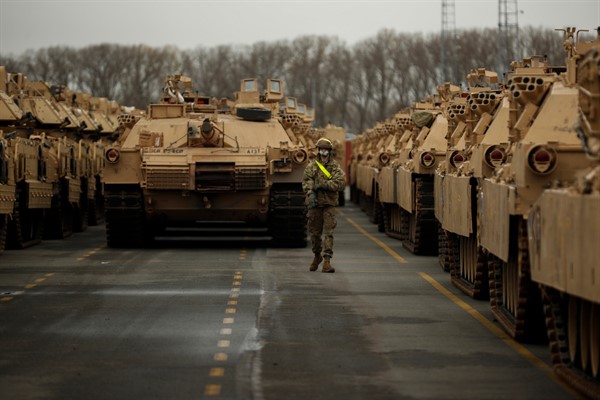In late September 2020, the long-simmering conflict between Armenia and Azerbaijan boiled over into full-blown war. As Azerbaijani tanks and drones advanced into territory held by Armenian forces, commentators around the world warned of the possibility of regional instability or even a wider conflict between Turkey and Russia, which supported opposite sides in the fighting.
The heart of the conflict was the disputed region of Nagorno-Karabakh, an obscure province in the South Caucasus that most Americans have never heard of—even fewer can muster an opinion as to which former Soviet republic it should belong to. Its relationship to U.S. security interests, even to experts, is not obvious. But nonetheless, various commentators in Washington insisted that the United States should intervene in some way. “The United States should be thinking—urgently—about how to raise the cost of prolonged fighting,” David Ignatius urged in The Washington Post. Nagorno-Karabakh, he warned, “offers a case study in how regional problems left unresolved can eventually explode into much wider crises. ... This faraway war could quickly get very hot.”
For many American observers, only the United States could effectively preserve stability in this fraught region. “Without U.S. diplomatic leadership,” Ignatius’ colleague Jason Rezaian asserted, “it’s difficult to imagine a lasting peace, as none of the regional powers that wield any influence—Turkey, Israel, Russia and potentially Iran—can credibly claim neutrality.” The upshot of these arguments, similar to what one hears in Washington with regard to almost any conflict anywhere in the world, was that if the United States did not exercise its power to deal with the problem, it wouldn’t get solved and would eventually hurt America’s security.

